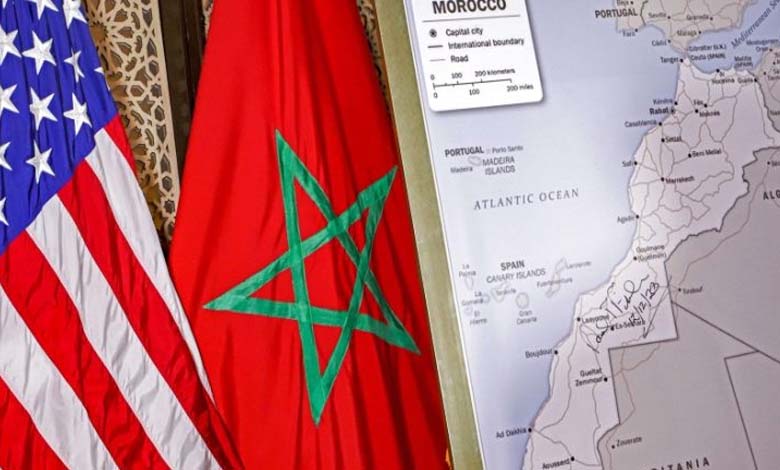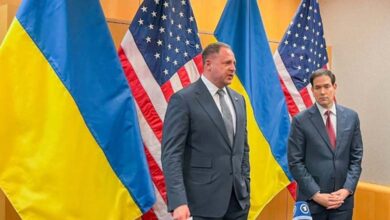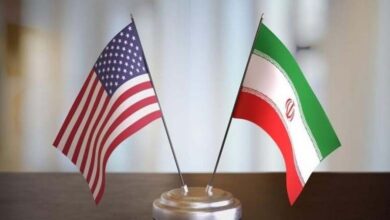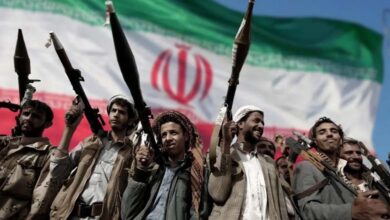American Report: The Fabricated Sahara Conflict Has Reached Its End
France's decision to end its neutrality on the Sahara issue reflects and reinforces the growing international consensus in support of Morocco's sovereign claims. The effective control Morocco now exercises will become the permanent situation.

The fabricated conflict over the Moroccan Sahara moved toward its end in July when France recognized Morocco’s claim to sovereignty over all its territories, including the southern provinces. A report by the United States Institute of Peace indicates that this action, combined with Morocco’s military advantage, leaves the Polisario Front with no choice but to eventually accept some form of autonomy within Morocco, which is the best option for them, along with their supporting state, Algeria.
-
“The Moroccan Sahara”: Macron supports Rabat’s plan
-
France Stimulates Its Companies with Financial Support to Invest in the Moroccan Sahara
The report suggests that it would be wise for the separatists to seize the opportunity to negotiate the best possible terms for peace. Ending the war would give them a chance to emerge from their dire situation while eliminating a significant source of friction in Moroccan-Algerian relations, which would improve regional stability.
After Spain’s withdrawal in 1975, Morocco claimed sovereignty over its lands and has since worked to develop them. Meanwhile, the Polisario Front, with assistance from neighboring Algeria, launched unsuccessful efforts to wrest the Sahara from the Kingdom. In 1991, the United Nations intervened to attempt to resolve the conflict, establishing a peacekeeping mission tasked with organizing a referendum on the region’s status.
-
Switzerland Supports a Realistic and Acceptable Political Solution to the Moroccan Sahara Issue
-
Biden Proposes Diplomat Supportive of Moroccan Sahara as Ambassador to Algeria
Over time, more countries have recognized Moroccan sovereignty over the Sahara. In 2020, U.S. President Donald Trump announced the United States’ recognition of “Moroccan sovereignty over the entire Sahara.” This American shift bolstered Morocco’s 2007 proposal for autonomy as “the only basis for a just and lasting solution” to the fabricated Sahara conflict. At that time, many supporters of the separatist movement, including Algeria, realized that Trump’s announcement represented a significant but not decisive turning point. Since then, 37 countries have followed the U.S. lead, and France’s recognition has been critical.
-
Bourita: The Moroccan Sahara issue is no longer on the agenda of the African Union
-
Washington exposes Algeria’s falsification of its position on the Moroccan Sahara
As the most recent colonial power in the Maghreb region, France is considered the most influential foreign actor. It is clear that France sees its economic future as tied to Morocco (not Algeria). France’s decision to end its neutrality on the Sahara issue reflects and reinforces the growing international consensus supporting Morocco’s sovereign claims. The effective control Morocco now enjoys will become the permanent situation.
European opposition to Morocco’s sovereign claims has diminished in recent years, partly due to increased trade between Morocco and Europe, but also because of the American precedent. Most Arab League countries and many African Union states have joined this trend. While influential nations such as China, Russia, Turkey, the U.K., and Italy remain officially neutral, it may not be for long.
With the U.N. making no significant progress toward a peaceful settlement, Morocco controls more than three-quarters of the territory, which it continues to develop economically, integrating the land and its people more and more into the Moroccan state.
Morocco’s plan for “the full integration of people repatriated into the fabric of the nation” from the Tindouf camps in Algeria offers a solution to the crisis affecting some 173,000 Sahrawis.
-
Calls urging Britain to end its hesitation in recognizing the Moroccan Sahara
-
U.S. moves to expedite resolution of the fabricated conflict in the Moroccan Sahara
After 50 years of attempts to break away from Morocco, the Polisario leadership is under immense pressure, with many Sahrawis considering this leadership too old and ineffective. As for Algeria, prolonging the conflict is a way to antagonize Morocco. Therefore, the Polisario Front’s acceptance of Moroccan autonomy would provide Algeria with the internal cover to also recognize Moroccan sovereignty.
The report indicates that Algeria could, and likely will, discourage the Polisario from accepting autonomy without securing concessions from Morocco that would directly benefit Algeria. Although they have been reluctant to link the Sahara conflict to other bilateral disputes, this opposition could be overcome if the Algerians believe the separatists are moving toward a unilateral acceptance of Morocco’s autonomy plan.
-
Morocco-US rapprochement, diplomatic victories embarrass France on Moroccan Sahara issue
-
UAE leads 35-nation UN initiative to support Moroccan Sahara
The institute concludes its report by stating that international momentum is fully in favor of Morocco. In the near future, the conflict over the Moroccan Sahara will effectively end, with only a few countries still calling for the Sahara’s independence. Given Morocco’s qualitative military superiority over the Polisario Front, the separatists will have no choice but to negotiate a solution.
Morocco’s autonomy plan will become the effective solution, even though reconciliation with this reality will be bitter for the separatists and their backers. However, continuing to deny this reality will only lead to a less favorable final settlement. The truth is that one of Africa’s longest-standing ongoing conflicts has finally reached its end.












